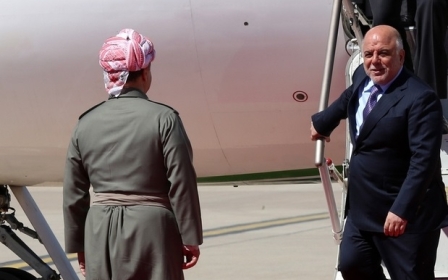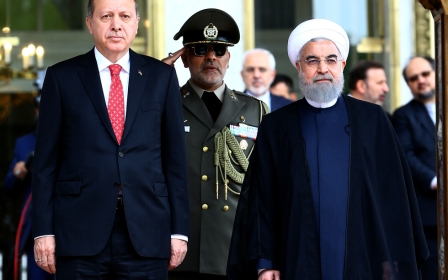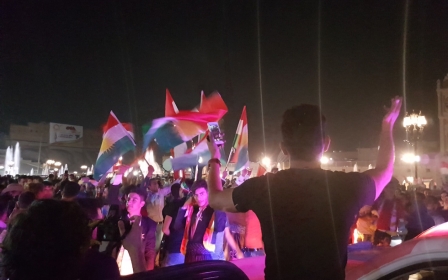Erdogan says Turkey will soon close Iraq border and air space
President Tayyip Erdogan said on Thursday that Turkey would soon close its border with northern Iraq and shut its air space in response to last week's Kurdish independence referendum.
"Flights to northern Iraq have already been suspended, the airspace and borders will also close soon," Erdogan said in a speech in the Turkish capital, Ankara.
Erdogan said the decision to hold the referendum showed the "perfect ingratitude" of the Kurdish Regional Government in northern Iraq, which had developed close commercial and political ties with Turkey.
"We demand the KRG take the necessary lesson from their mistakes and take steps to compensate for them as soon as possible," Erdogan said.
France offered on Thursday to mediate in the political crisis pitting Iraq's government against Kurdish regional authorities, and promised to maintain a military presence there until Islamic State was defeated.
'We demand the KRG take the necessary lesson from their mistakes and take steps to compensate for them as soon as possible'
- Turkish president Recep Tayyip Erdogan
The offer by President Emmanuel Macron coincided with a visit by Iraq's Prime Minister Haider al-Abadi, his first abroad since its Kurdish-held northern regions last month voted for independence in a referendum declared illegal by Baghdad.
The Iraqi government has imposed sanctions in response to the independence vote, but Abadi said on Thursday he could understand the Kurds' "aspirations" - provided they were expressed in accordance with the constitution - and wanted to avoid violence.
"We do not want an armed confrontation, we don't want clashes," Abadi said, speaking alongside Macron. "But the federal authority must prevail and nobody can infringe on the federal authority."
The outcome of the referendum has raised concerns in Iraq and abroad that a conflict might break out there along ethnic lines, potentially weakening a US-backed campaign against Islamic State, which still holds pockets of territory in Iraq and Syria.
Macron, whose country is the second-biggest contributor to the campaign, said French forces would remain until the militant group's defeat was "total."
"It is vital in the coming weeks and months that a dialogue begins that respects the unity, integrity and sovereignty of Iraq within the framework of the constitution and recognising Kurdish rights," Macron added.
'We do not want an armed confrontation...but the federal authority must prevail and nobody can infringe on the federal authority'
- Iraqi PM Haider al-Abadi
France is ready, if Iraqi authorities wish, to actively contribute to the mediation launched by the United Nations."
Iraqi-Kurdish tensions were ratcheted down a notch on Wednesday when the central bank in Baghdad eased financial restrictions imposed after the vote, after receiving a pledge of cooperation from Kurdish banks, an Iraqi banking source said.
The central bank had said on Tuesday it would halt all foreign currency transfers to the region, banking and government sources told Reuters. All but four Kurdish-owned banks were on Wednesday again allowed to send and receive dollar and foreign currency transfers, the first banking source said.
Abadi, in Paris for bilateral talks, said the Iraqis and Kurds had a common interest in maintaining peace.
He had on Tuesday called for a "joint administration" of oil-rich Kirkuk and other areas claimed by both his government and the autonomous Kurdish region, provided Baghdad had ultimate authority in any such arrangement.
Kurdish Peshmerga fighters took control of Kirkuk in 2014, when Iraqi forces collapsed in the face of Islamic State’s advance across northern Iraq.
"I call on the Peshmerga to remain an integral part of the Iraqi forces under the authority of the federal authorities, to guarantee the security of citizens so that we can rebuild these zones," Abadi said, referring to areas taken back from Islamic State militants.
New MEE newsletter: Jerusalem Dispatch
Sign up to get the latest insights and analysis on Israel-Palestine, alongside Turkey Unpacked and other MEE newsletters
Middle East Eye delivers independent and unrivalled coverage and analysis of the Middle East, North Africa and beyond. To learn more about republishing this content and the associated fees, please fill out this form. More about MEE can be found here.




